
Earlier this year, IDP-023 received fast track designation by the FDA for the treatment of patients with multiple myeloma and non-Hodgkin lymphoma.

Earlier this year, IDP-023 received fast track designation by the FDA for the treatment of patients with multiple myeloma and non-Hodgkin lymphoma.

The CEO and cofounder at Advanced Brain Monitoring talked about how exploring electroencephalography patterns can help differentiate between Alzheimer disease, Lewy body dementia, and frontotemporal dementia. [WATCH TIME: 3 minutes]

Anavex Life Sciences intends to submit a full regulatory application for blarcamesine as a potential treatment for AD in Europe by Q4 2024.

Catch up on any of the neurology news headlines you may have missed over the course of July 2024, compiled all into one place by the NeurologyLive® team.

Marketed as Crexont, the combination extended- and immediate-release treatment is indicated for treatment of PD, and is anticipated to be available in the United States in September 2024.

The positive data from this Phase 1a trial will inform the dosing for the upcoming Phase 1b portion in patients with AD, expected to commence in the second half of 2024.

A duo of experts highlighted the need for further studies on the exploration of how exposure to wildfire particulate matter impacts neurodegenerative diseases. [WATCH TIME: 2 minutes]

The director of the Brain Health Observatory at the University of Southern California discussed how blood tests for Alzheimer disease could significantly reduce diagnostic wait times and improve treatment monitoring. [WATCH TIME: 4 minutes]

The personalized medicine lead at Linus Health provided clarity on a new outcome measure that captures various perspectives about what matters to individuals and their brain health.

Treatment of the first randomized patient with preclinical Alzheimer disease in the phase 2b ReTain trial assessing JNJ-2056 is anticipated in the third quarter of 2024.

Neal K. Shah, CEO of CareYaya Health Technologies, explores the potential of AI-enhanced, neurotech-powered music therapy as a revolutionary solution to chronic pain management and the opioid crisis.

The consultant neurologist at Fondazione Don Carlo Gnocchi ONLUS stressed how new clinical trial designs for cervical dystonia should incorporate more flexible and patient-centered approaches, including new measurement scales and the use of technology. [WATCH TIME: 5 minutes]

In pediatric patients, the average treatment intensity was 22.8% of the maximum stimulator intensity, with slightly lower intensity levels compared to previous studies in adolescents and adults.

MoMeNtum will evaluate the efficacy and safety of DNTH103, administered subcutaneously every two weeks over a 17-week period, followed by a 52-week open-label extension to collect additional safety and efficacy data.

Lecanemab, an antiamyloid medication, was previously approved for the treatment of AD in the US in June 2023.

Known as REVITALYZ, the double-blind, placebo-controlled study will assess the effect of once-nightly sodium oxybate on the primary end point of change in Epworth Sleepiness Scale over a 14-week period.
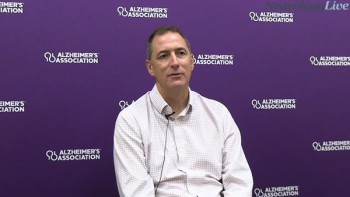
The professor of neurology and Diana Davis Spencer Foundation Chair at the Jackson Laboratory provided context on a presentation from AAIC 2024 highlighting the ways genetics can impact microglia function and its relation to Alzheimer disease. [WATCH TIME: 3 minutes]

Here's some of what is coming soon to NeurologyLive® this week.
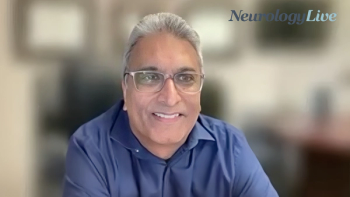
The president at Fasikl and the Laverne and Joyce Rider professor of neurology at the University of Kansas Medical Center talked about results from a pilot study assessing the Felix Neural AI wristband in patients with essential tremor. [WATCH TIME: 4 minutes]

Using plasma p-tau217 shows promise as an effective, less invasive pre-screening method for identifying amyloid-β positive individuals in Alzheimer disease clinical trials.
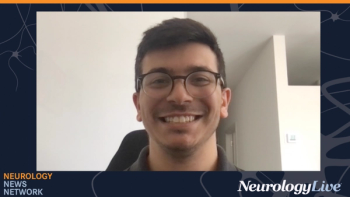
Neurology News Network. for the week ending August 3, 2024. [WATCH TIME: 4 minutes]

Test your neurology knowledge with NeurologyLive®'s weekly quiz series, featuring questions on a variety of clinical and historical neurology topics. This week's topic is on disparities on stroke.
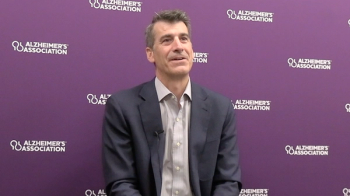
The chief medical officer and head of Research & Development at Cognition Therapeutics provided clinical insight on new phase 2 data and the mechanism of action of CT1812, a therapy in development for Alzheimer disease. [WATCH TIME: 5 minutes]

In addition to showing a slowed disease progression, TPN-101-treated patients had lowered levels of key biomarkers involving neurodegeneration and neuroinflammation.

Take 5 minutes to catch up on NeurologyLive®'s highlights from the week ending August 2, 2024.

The meeting with the American Neurologic Association fosters collaboration, networking, and joint sessions, enhancing knowledge sharing among academic neurologists.

Enrollment in the dose level 2 expansion cohort is expected to complete early in Q3 2024, with initial strength and functional data anticipated in the second half of 2024.

The consultant neurologist at Fondazione Don Carlo Gnocchi ONLUS talked about a recent study that examined the varying methods and results of clinical trials assessing the duration and efficacy of botulinum toxin treatment in cervical dystonia. [WATCH TIME: 7 minutes]
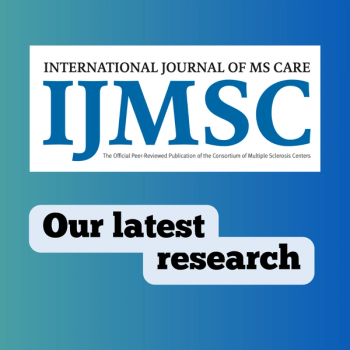
Here's the latest multidisciplinary multiple sclerosis (MS) research from the International Journal of MS Care.

The 3-year data highlighted the safety profile of lecanemab and its disease-modifying effects on tau accumulation and other biomarkers related to AD pathology.